Table of Contents Show
Professional truck drivers tow massive loads across the country, and often with minimal effort. Most of them make it look easy, not because it is, but because they likely went through some sort of training. If you’re new to RVing, you may wonder: “Do you need a special license to drive an RV?”
The answer isn’t as cut and dry as you might think. Let’s take a look and see if you’ll need one.
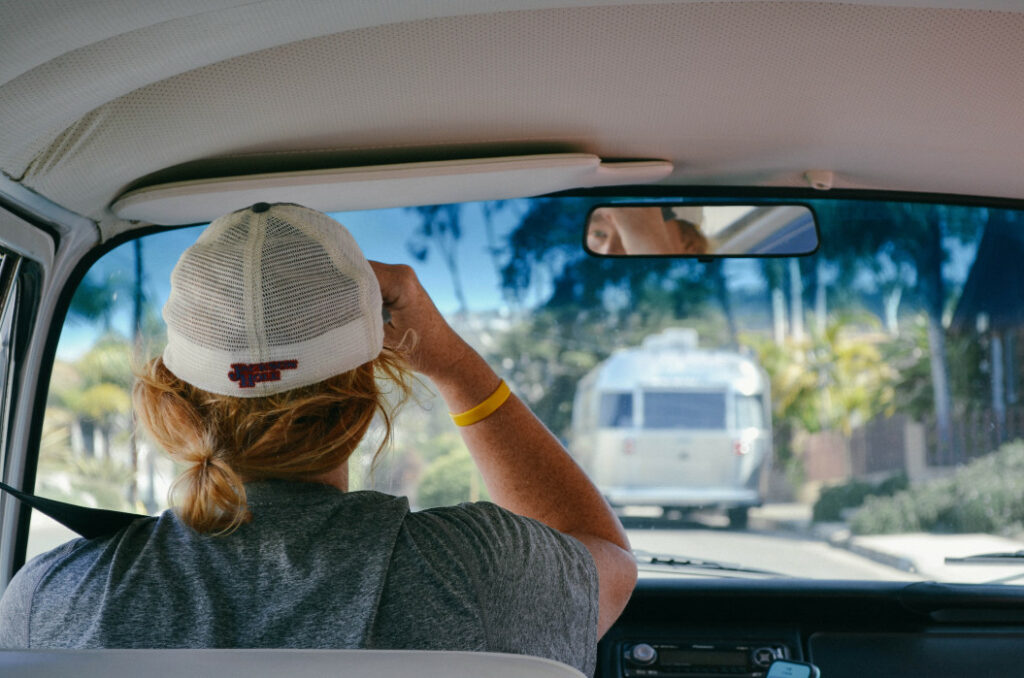
Do You Need a Special License to Drive An RV?
In some states, you do need a special license to drive an RV in certain circumstances. However, most states don’t require a special license to drive an RV.
The states with a licensure requirement often have length or weight restrictions before designating that you need a license. Regulations vary from state to state, so it’s essential to check with your local DMV for your specific rules and regulations.
Don’t worry if you plan to tow or drive an RV in another state. States are reciprocal when it comes to licensing, meaning they recognize the license from one state to the next. This makes it much easier for RVers to travel across the country without constantly worrying about licensure requirements.
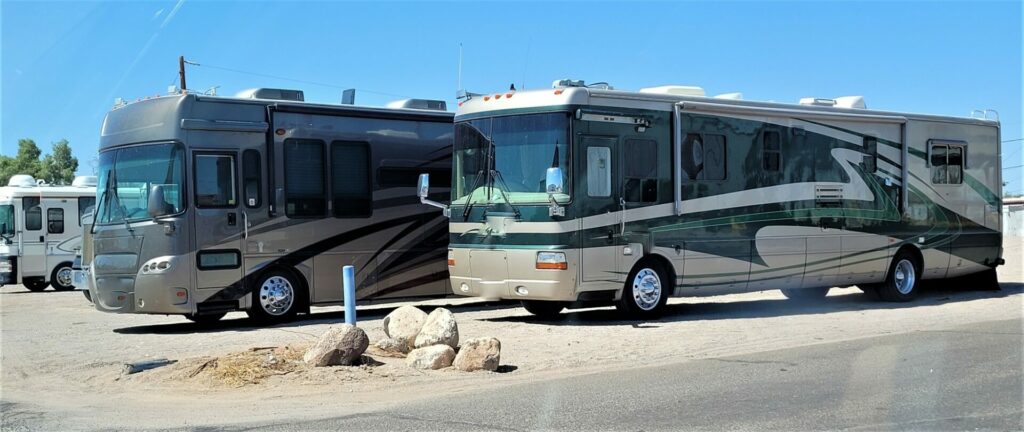
When Does Driving an RV Require Special Licensing?
Many states that have special licensing requirements for driving an RV often use weight or size limits. It’s common to see restrictions start when a vehicle’s gross combined vehicle weight exceeds 26,000 lbs.
This means the truck and trailer combined weight cannot exceed that number. For a majority of RVers, this isn’t a problem, but if you’re towing a large toy hauler with a dually truck, there’s a good chance you’re over 26,000 lbs.
Some states also add a length restriction when it comes to requiring a license. This type of restriction is typically for motorhomes over 40 feet long. So it might be worth keeping length in mind while shopping for a motorhome if you reside in a state with this restriction.
Pro Tip: Considering a dually for pulling your RV? Check out which ones we think are the best dually trucks for towing.
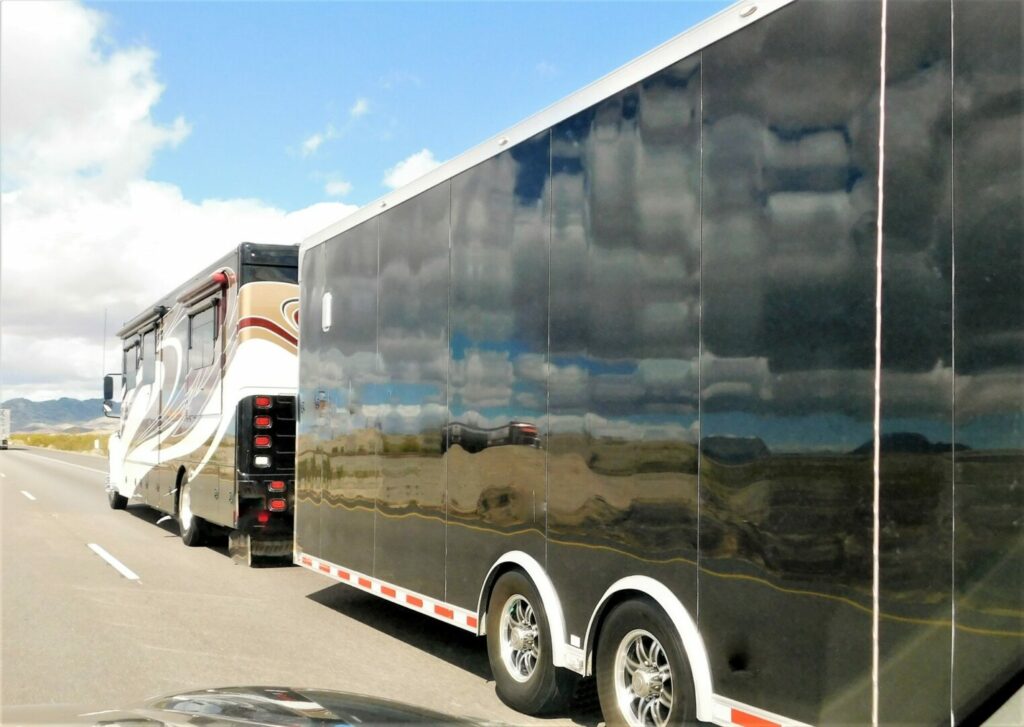
What Is the Difference Between a CDL and Class B License?
CDL is short for a commercial driver’s license. There are varying classes of CDLs based on the type of vehicle, its use, or its length and weight. Some states require this license when driving for business purposes, like hauling passengers or large equipment. You must know which type of license you need to acquire, or you may have trouble registering, owning, or operating your RV in certain states.
One of the classes of CDLs is a Class B license, which you can use for commercial or non-commercial purposes. This is the license that allows a driver to operate vehicles that exceed the 26,000 GVWR limit. So if you live in a state with this restriction, this is likely the special license you’ll need to tow a large RV.
Which States Require Special Licenses for RVs?
Currently, there are only 11 states and one district that have special license requirements for RVs. These states include Arkansas, California, Hawaii, Kansas, New Mexico, New York, North Carolina, Maryland, Pennsylvania, Texas, Washington DC, and Wyoming.
Rules and regulations may change, so be aware of changes that may affect your licensing requirements.
There seems to be a pattern regarding license requirements in these states: If your Gross Combined Weight Rating (GCWR) exceeds 26,000 lbs, you need a special license. However, there are differences from state to state regarding requirements, so familiarize yourself with your state’s requirements.
Pro Tip: Speaking of legality, do you know if it’s legal to ride in the back of a fifth wheel while it’s moving?
Get Licensed and Comfortable in Your RV
If your state requires a special license for your RV, do your due diligence and get that taken care of. If not, at least become comfortable in your RV before hitting the open road. Driving can be difficult, especially when dealing with a large RV. While most states don’t require special licensing, you must have the proper licensing for your state.
However, having the appropriate license for driving is just the start. Getting comfortable driving your RV is equally essential to help ensure a safe trip. Practice and consider taking a class to help you improve your skills and keep yourself and those around you safe on the road.
Do you live in a state that requires a special license for an RV?




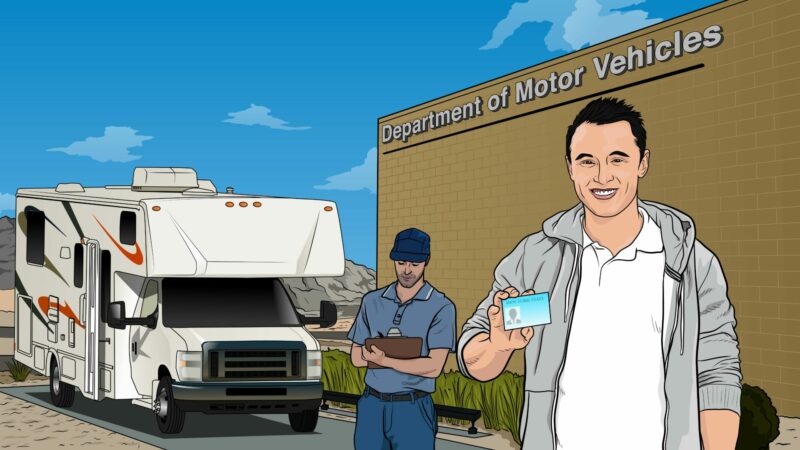
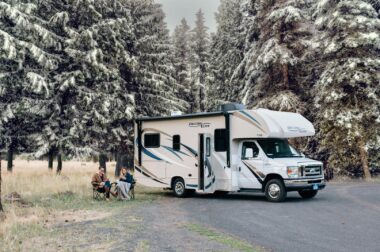

Texas has a requirement based on the GVWR of truck and trailer combined (26,000#), if the trailer is rated over 10,000d (Class A). If driving a motorhome with a GVWR over 26,000#, you need a Class B. Neither is a “CDL”. Both require a very short, multiple-choice written test and a short driving test that includes being able to back up straight for 100′. Both licenses only apply to Texas residents.
Texas also has an overall length limit of 65′ for anyone that doesn’t hold an actual CDL, even if from out of state. While you’ll likely not get stopped for this, it has been known to happen.